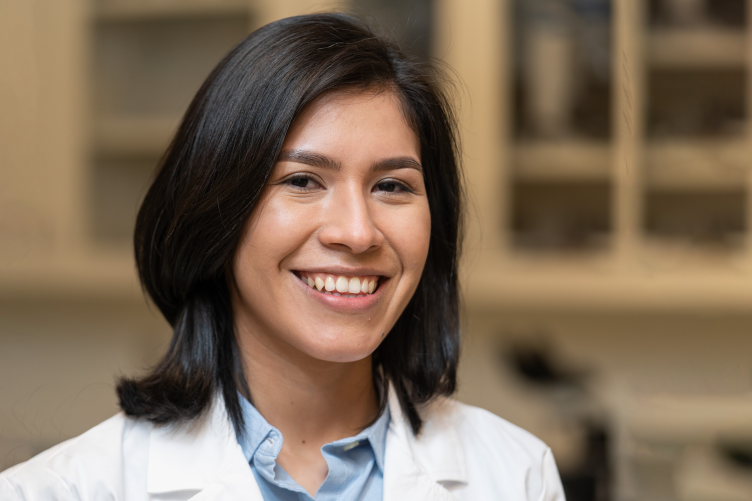
When Dianne Moschitta ’22 felt she had outgrown the career opportunities in her hometown in upstate New York, she knew it was time to step out of her comfort zone and move to a town she had never heard of before – Nashua, N.H. The interest in plant biology she had developed during her time in community college led her to apply to UNH Manchester’s biological sciences major, but she quickly realized biotechnology was a better fit.
“It only took about a semester for me to realize how much I enjoyed spending time in the lab,” Moschitta said. “Every time I set foot in a lab, it became an engaging, compelling and immersive experience for me. I wanted my career path to be lab oriented, so I looked into the biotechnology program and loved everything about it.”
In addition to expanding her career opportunities, Moschitta also looked at UNH Manchester as a fresh start. While she hadn’t previously been very involved at her former schools, she quickly joined the biology club and became a member of the TriBeta Biological Student Honor Society. She also volunteered to be a STEM Teaching Fellow, became part of the NoMADs project for NASA’s Student Payload Opportunity with Citizen Science program and transitioned from an undergraduate researcher to a graduate researcher in Assistant Professor Kristen Johnson’s pancreatic cancer lab.
“Because I’m a hands-on learner, I knew I would benefit from more exposure to the lab,” Moschitta said. “I was lucky enough to catch Dr. Johnson’s attention.”
Moschitta’s research focuses on the effects the FOXN2 gene has on pancreatic cancer cells. Her day begins with suiting up and heading to the cell culture lab where she begins prepping the cells for testing. Moschitta and her partner prep enough cells for three different tests: adhesion, migration, and proliferation.
“My lab partner and I have been focusing on FOXN2 gene knockouts using CRISPR on human and mouse pancreatic cell lines and observing changes due to that knockout,” she says. “It can be a long process, but strangely very relaxing for us.”
After graduation, Moschitta hopes to secure a job in Research Triangle Park, N.C.
“I would love a position in one of the many biotech companies specializing in agriculture or horticulture,” she said. “It would be great to work on preventing plant diseases and pests through non-invasive, environmentally friendly methods.”
-
Written By:
Christina Casinelli | UNH Manchester
















































